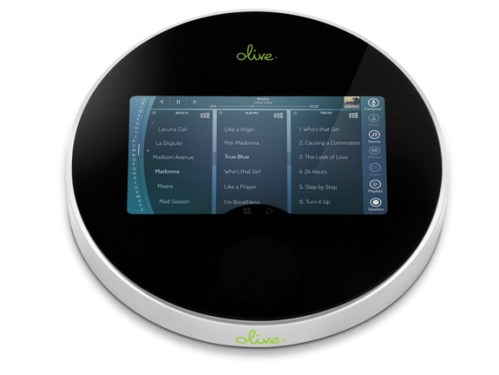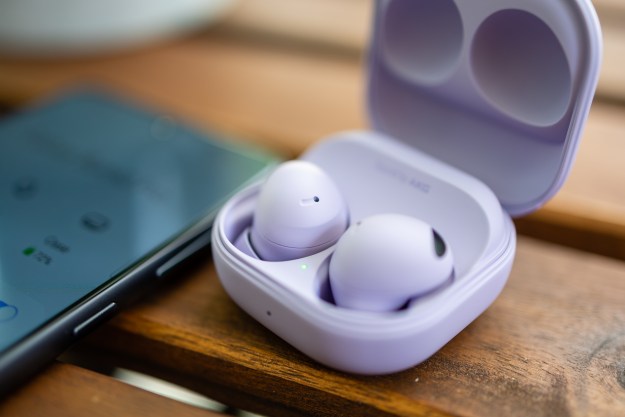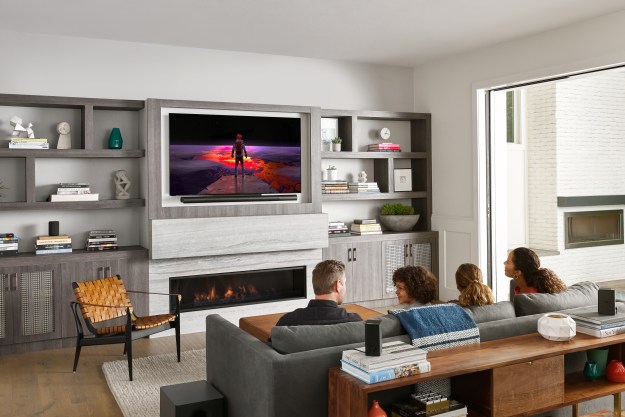 Wanna know the dirty little secret behind high-priced hi-fi equipment? Those nosebleed price tags aren’t really justified by the hardware inside the box, the design sense behind the enclosure that houses it, or even the engineering expertise that makes it all work. According to Oliver Bergmann, CEO of Olive Media, Inc., the reason products like the exquisite digital music servers his company builds cost anywhere from $999 to $5,699 is because the retail distribution channel exacts obscenely fat margins from audiophile equipment manufacturers.
Wanna know the dirty little secret behind high-priced hi-fi equipment? Those nosebleed price tags aren’t really justified by the hardware inside the box, the design sense behind the enclosure that houses it, or even the engineering expertise that makes it all work. According to Oliver Bergmann, CEO of Olive Media, Inc., the reason products like the exquisite digital music servers his company builds cost anywhere from $999 to $5,699 is because the retail distribution channel exacts obscenely fat margins from audiophile equipment manufacturers.
Bergmann sees crowd funding as the solution to that problem, and that’s how he intends to finish his next product and bring it to market. The Olive One, Bergmann promises, will deliver the same stunning musical reproduction that Olive’s music servers are known for, but at a fraction of the price: $399. And that’s just the beginning. Bergmann’s long-term roadmap envisions matching, stackable speakers; a home cloud service that lets you listen to your music from anywhere in the world; an app-development ecosystem; and a series of pop-up stores where you can not only buy Olive audio devices, but 
Although it will be hand-built in San Francisco, like Olive’s existing music servers (we’ve reviewed the Olive 06HD and the older Olive 04HD), the Olive One is a dramatic departure from those products. It’s much smaller and it’s disc-shaped (nine inches in diameter); in fact, it’s nearly flat (1.61 inches at its highest). It also won’t have a remote control (you’ll be able to use your smartphone).
But it will have a seven-inch color touch-screen user interface, an integrated 32-watt-per-channel amplifier, a 32-bit Burr-Brown DAC, the capacity to decode 24-bit/192kHz files, and the ability to stream music from your phone, computer, or NAS box to other Olive Ones stationed around your home using its own wireless network (independent of any Wi-Fi network you might already have). The device will also support Bluetooth A2DP, Wi-Fi Direct, and Miracast. A 2.5-inch, 1TB internal hard drive will be optional, but it will add only $50 to the price tag.
You might say Olive is calling Sonos out to the OK Corral.
The foundation of the Olive One is a single four-layer circuit board populated by an ARM processor, a DSP, the aforementioned DAC, and memory. In order to eliminate noise contamination, the unit’s power supply will be housed in a small brick outside the unit.
An ingenious docking port on the bottom of the Olive One will connect to an optional disc-shaped, three-way speaker unit that Olive will manufacture if its initial crowd-funding campaign is successful. A similar port on the bottom of the speaker will allow you to stack the Olive One and its speaker on top of one or two additional speakers. While even a single speaker will produce stereo, adding a second speaker will designate one as the left channel and the other the right. Add a third speaker—presumably a subwoofer—and the system will automatically divide frequencies according to what each can handle.
While Bergmann says he’s not an audiophile, he laments the direction in which the MP3 file format and Apple’s iTunes juggernaut have dragged the music industry. “Music is the only art form where the experience has not improved with technology,” Bergmann said. “Every generation of digital camera has delivered higher resolution. We can watch movies now in very high resolution. But the quality of recorded music has deteriorated. Music has become more convenient, but it sounds so much better on the old technology of vinyl records and even CDs.”

If you haven’t heard of Olive, it’s likely because you weren’t part of the company’s target market. “Most of our customers are [aged] 50 plus,” Bergmann said. “They’re professionals—lawyers and doctors. Now we’re focusing on the 25-to-35-year-old market.” To that end, Olive is developing an operating system for the One that will “learn” your musical tastes and integrate with your social networks in an effort to expose you to new music that you’ll like.
The Olive One will support all the music file formats you’d expect, including FLAC, Apple Lossless, MP3, AIFF, and even WAV. It will also support streaming music services such as Spotify and Pandora, although the low-fidelity streams those services offer won’t sound any better on an Olive One than they do on most other music systems.
But Bergmann is pursuing more than a new audio market. He hopes to change the way music is made and distributed. “Get rid of the middleman who’s making decisions about what music gets made, and which artists get to be heard. That’s what our idea of an open music platform is all about: Bring crowd funding into the music experience. Eventually, we’d like you to be able to use the Olive One to contribute to the artists you like. People will be able to make small investments in their own future.”
The Olive One will be priced at $399 when it ships in July 2013, but 500 early birds who invest $379 will save $20 and get free shipping. So if you invest $379 in the development project today, you’ll receive a $399 Olive One in July. Olive is offering other perks as well. Olive soft-launched its campaign on Monday, informing only its investors, suppliers, friends, family, and the media. As of Tuesday afternoon, it had received nearly $30,000 in pledges.



